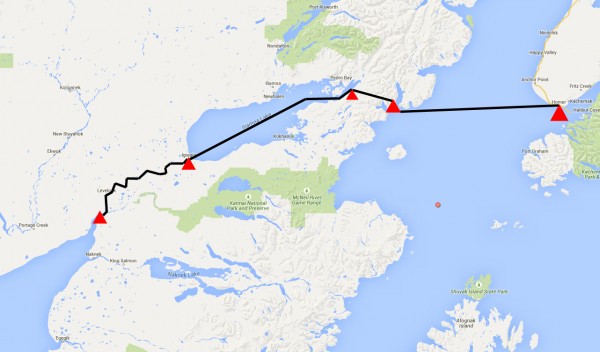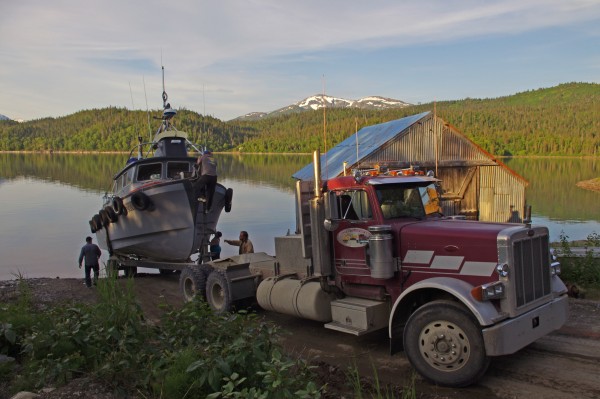
Every year dozens of boats travel back to Bristol Bay. Some ride on tenders or cargo ships, and some steam themselves around False Pass, a journey of more than 1000 miles that can be treacherous.
But about 60 boats, most from Homer and Kodiak, take a different route across the Chigmit Mountains on the Alaska Peninsula.
KDLG’s Molly Dischner tagged along with a captain and crew bringing their 32-foot drift boat back to the Bay after a winter of maintenance in Homer.
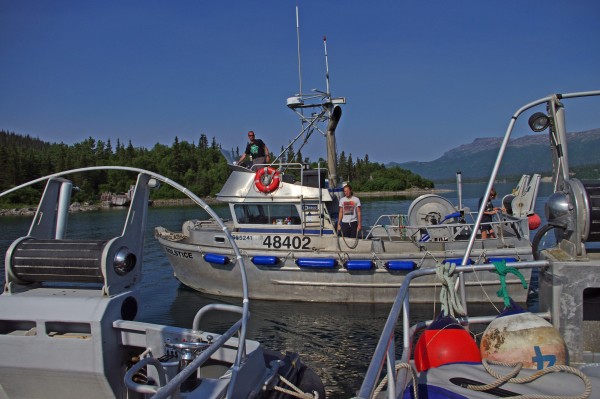
After a round of hugs to family staying behind, the F/V Eagle Claw leaves Homer at 10 a.m. sharp on a recent Saturday morning.
We’re setting off on a five day journey. First we’ll cross Cook Inlet, then we’ll take a 15 mile road over a mountain pass to Iliamna Lake before navigating down the shallow Kvichak River.
Skipper Louie Flora, who has made the trip three times, says Cook Inlet is one of his favorite parts.
“This is pry the most beautiful spot I think along the trip,” he said.
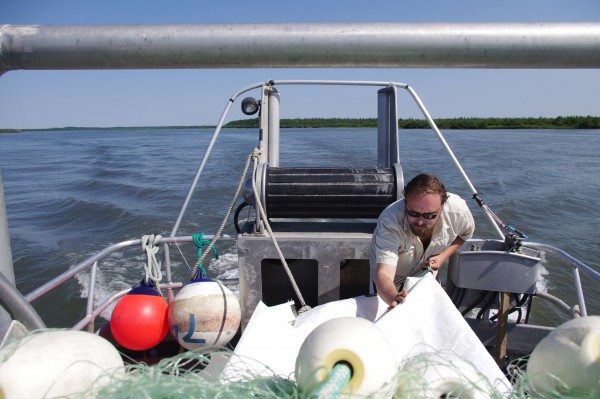
Flora has fished Bristol Bay since he was a kid in the 80s. His dad built the boat in the late 70s. Most years, the boat winters in King Salmon. But this year, he had it back in Homer so he could work on it.
By early evening, we’ve dropped anchor and joined a line of boats between Iniskin Bay and Iliamna Bay, waiting to get towed over the road. Flora’s not in a hurry. There aren’t any reports of big catches yet, just boat work waiting to be done.
A day will pass before the Eagle Claw is hauled out at Williamsport.
Louie’s brother- and fishing partner- Jonathan Flora is onboard as well.
“Yeah, another day of waiting, and roasting,” he said.
The boat is one of half a dozen in line here at the base of the Chigmit Mountains. While we wait we play card games – Jonathan’s least favorite pastime – and canoe to shore for hiking and swimming. I can’t get over how gorgeous our waiting spot is.
Eventually we’re hauled out. I climb in the cab with Ray Williams, who’s driving truck.
Molly: “How long have you been driving this?”
Williams: “That’s a good question that, right off the bat, I can’t answer. I think since ’72.”
This business is in Williams’ blood. His dad started hauling goods along this route 70 years ago, mostly groceries and mail from Cook Inlet to Iliamna Lake. Eventually, fishermen decided to see about getting towed their boats towed over the road.
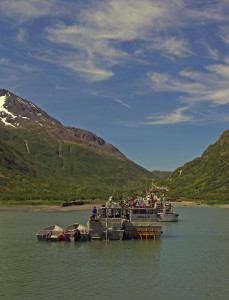
Williams says he did 120 hauls last year, a record.
It’s an hour and a half up the bumpy, 15 mile dirt road. We arrive in Pile Bay where the family offers hot showers, clean towels and internet.
“We got a router in the yard here now, and we looked out here the other night about one o clock, man the place was lit up,” Ray said.
Ray’s son Chet backs the Eagle Claw and another Homer boat, the Independence, into Iliamna Lake one at a time. The sun is setting across the lake by the time the boats are docked there.
We spend a full day waiting. Captains talk engines. Crew members enjoy wifi and swimming.
It’s one of the last slow moments before the fishery begins. But Independence crew member James O’Connor, says it’s hard to enjoy it.
“Well, it’s kind of tough to know that you’re going to start working soon, just kinda anxious I guess a little bit,” O’Connor said. “It’s kinda a weird medium between hanging out but getting ready also.”
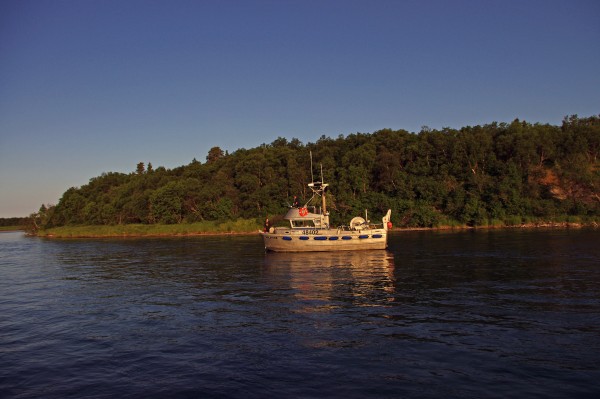
Tuesday morning, the Eagle Claw rafts up with the Independence and another drifter for the 70-mile trip across Iliamna Lake.
We drop anchor late that evening just above the Kvichak River, near Iliamna.
The next morning, Louie points the boat down the Kvichak for the only white knuckle part of the trip.
A setnetter I meet in Pile Bay named Bryce tells me about the infamous Kvichak braids.
Bruce: “And sometimes you have to get out and push.”
Molly: “Did that happen last year?”
Bruce: “Yeah.”
Molly: “Yikes.”
Bruce: “Just one spot though.”
But like most boats, we won’t brave the braids alone.
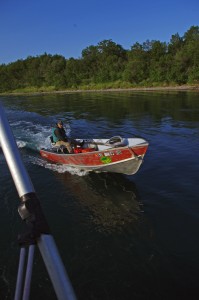
Our guide, George Riddles, jumps aboard before we reach the Kvichak’s braids. He takes over navigation.
“Right around the corner to the right, we’re going to give the corner a little bit of respect and then come in pretty tight on the bank,” Riddles said.
The shallowest reading is about 1.4 feet. The boats make it through with issue, but we see others traveling that morning that aren’t so lucky.
Then it’s another eight hours or so down the river.
The Kvichak River turns from clear green-blue to muddy.
As we near the mouth of the river, we travel past a shut-down cannery, and active setnet sites.
Eventually, we spot a line of boats on the horizon. The Kvichak tender line. We’re back in Bristol Bay.

